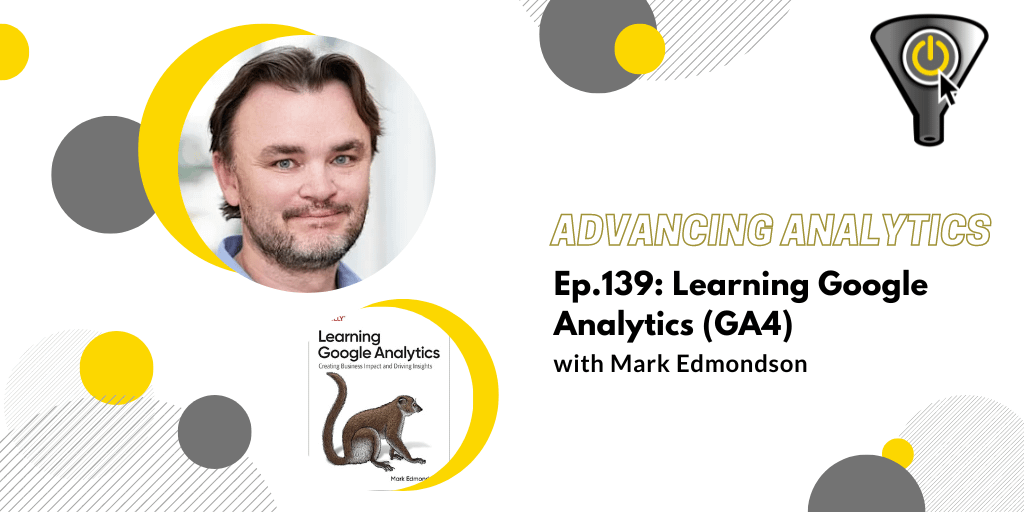Episode 139: What Google Analytics 4 Makes Possible, with Mark Edmondson
We’re ending our series on advancing analytics today. We’ll focus on the software that, for many marketers, is at the core of this field: Google Analytics. It was introduced in 2005 as a read-only tool that tracked basic info on websites. The name has stayed the same over these last 18 years, but so much else of Google’s technology landscape has changed: they have released many other tools: Tag Manager, Google Data Studio, now Looker Studio, ways for API’ing between systems in and outside of Google, and most importantly a place where it can all be managed – Google cloud.
The new Google Analytics GA4 was born of this environment.It’s been criticized as being immature since it lacks features that were in the old UA interface. However, if judged by how well Google integrated it into their stack and how much those with technical skills can do with it, we would rate it as ready for prime time. Add to that the fact – in a matter of weeks Google teams won’t have to maintain two analytics tools, and they’ll get to focus exclusively on just one – GA4.
We can debate Google’s motives for tightly integrating GA4 with the whole Google cloud. I’m not wading into how good or evil it is to give away a product and hope users try the paid cloud platform that comes with it. But I’ll say that using Google Analytics with these other pieces lets you do much more with your data that you couldn’t do with the old GA. And when tools directly or indirectly make money for Google, that incents them to keep those tools and keep improving them. I’ll leave it at that.
Our real question is how do we economically benefit from the available tools. And that’s what our guest is going to tell us. His book which came out in early 2023 is called “Learning Google Analytics: Creating Business Impact and Driving Insights” The business impact spoken of there doesn’t mean using GA4 as a standalone lookup tool. Using it like that and ignoring what’s possible, would make the rest of the whole Google stack seem (to quote from the Movie ‘Contact’, “like an awful waste of space”
Our guest knows the value of integrating Google’s tools for many world-wide brands, as he’s done through digital agencies on his own as a GA consultant since 2008. Mark Edmondson has helped turn the out-of-the-box Google Analytics into a package that automatically describes, predicts and activates better marketing outcomes. He currently works at Devoteam as their Principal Data Engineer.
Mark grew up in Cornwall, UK before gaining his Masters in Physics at Kings College London. He now lives in Copenhagen with his wife and two children, enjoying playing music and cycling around the many lakes.
People/Products/Concepts Mentioned in Show
Mark’s blog
The ‘jewel in the crown’ of Google Cloud: BigQuery
What it means to implement Server-Side Google Tag Manager
Episode Reboot. Mark’s takeaway: ‘Moving all the useful data to one place has had the most transformational effects on a client’s digital maturity,’


